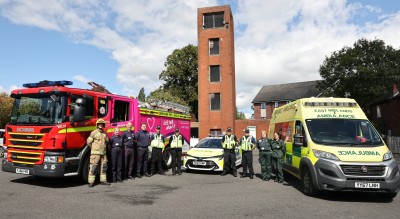
The NHS England Core Standards for Emergency Preparedness, Resilience and Response (EPRR) are the minimum standards that NHS organisations and providers of NHS-funded care must meet.
As a provider of NHS-funded services, the standards require the Trust to:
- Support our CCGs and NHS England, within their health economies, in discharging their EPRR functions and duties, locally and regionally, under the Civil Contingencies Act 2004
- Have robust and effective structures in place to adequately plan, prepare and exercise the tactical and operational response arrangements both internally and with their local healthcare partners
- Ensure business continuity plans mitigate the impact of any emergency, so far as is reasonably practicable
- Ensure robust 24/7 communication “cascade and escalation” policies and procedures are in place, to inform CCGs and healthcare partners, as appropriate, of any incident impacting on service delivery
- Ensure that recovery planning is an integral part of its EPRR function
- Provide assurance that organisations are delivering their contractual obligations with respect to EPRR;
- Ensure organisational planning and preparedness is based on current risk registers
- Provide appropriate director-level representation at Local Health Resilience Partnership(s) and appropriate tactical and/or operational representation at local health economy planning groups in support of EPRR requirements
For the NHS, incidents are classed as either: Business Continuity Incident; Critical Incident; or Major Incident.